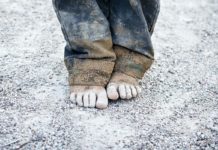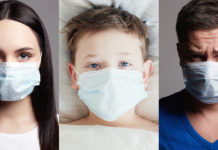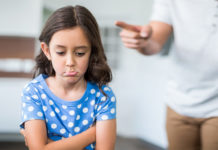Tag: crisis
COVID-19: What we have (not) missed during the lockdown
Life in lockdown had an atypical rhythm and texture. While for some this upset their daily lives, for others it was an unexpected response to an unspoken need.
COVID-19: A hundred remedies for solitude
I open the window and breathe in the air, trying to guess the weather. Floating around, mixed, are scents and miasms alike; it's hard to decipher these intricate clues.
COVID-19: A sad opportunity for the homeless
The prevailing message in the context of the pandemic was clear, but also disturbing: "Don't go out! Stay home! Work from home!" But what about those who do not have a home?
COVID-19: How to stay efficient at work when your kids are near
How can one be efficient with your tasks when you no longer have an office of your own? How can one divide themselves between children, household chores and deadlines? How can one excel in their job without losing their mind or at least their patience? These are questions I had to face during the pandemic, even if working from home, around children, is part of my lifestyle in recent years.
”The coronavirus has been anything but a great equalizer.” The impact of COVID-19 on the...
A famine of biblical scale is already looming on the horizon, says David Beasley, director of the World Food Program. More than 30 developing countries could be affected by the scourge – 1 million people are already affected. It's not just people going to bed hungry, Beasley insists, explaining that it's a state of emergency where outside help is the only hope.
COVID-19: Life in the shadow of death
I am not an expert on the phenomenon of death. But like all of us, I have to live in its shadow, and watch the restlessness and greed it causes. The same gloomy reports that circle the planet also reach me. I feel especially conscious of this as COVID-19 claims its first victims in my country.
COVID-19: What people on the front line think and feel
While most of us have been staying inside for several weeks, many leave the safety of their homes every day to help us live our lives as normally as possible.
COVID-19: Recurrent revelations
Any large-scale phenomenon, such as a pandemic, activates our instinct to preserve our state of being—especially when we feel like we are losing it.
COVID-19: How has it affected young people?
Early reports out of China showed that elderly people and the chronically ill were most vulnerable to Covid-19. Yet an alarming number of young people in the United States have been hospitalized with severe infections. According to the Centers for Disease Control and Prevention, nearly 40% of American Covid-19 patients who were hospitalized were under 55 – and 20% were between ages 20 and 44. And in rare cases, even children have died after falling ill with Covid-19. – The Guardian.
COVID-19: How do you recognise a conspiracy theory in a pandemic?
The Colorado beetle that threatened the potato crop of the former GDR in 1950 might have been an American method of sabotage against the Eastern bloc. A sinister German plot might have been the cause of the Spanish flu. Perhaps AIDS emerged as a biological weapon developed by the United States and has been tested on prisoners and minorities. Every crisis humanity has ever faced has had its own conspiracy theories and its own conspiracy theorists.
COVID-19: Could giving up ever be the key to success?
Pray! If not to God, then to a god. Admit that we are defeated, because this is the first step towards victory.
Life after lockdown: a return to the rat race?
On any given day, a typical person checks the clock several dozen times.
How to manage parent-child conflicts during the pandemic
One can hardly overestimate the role the relationship between a parent and their child plays in forming a matrix for the child’s future relationships, whether healthy or dysfunctional. The quality of the parent-child relationship is essential because it directly impacts the child’s social and emotional development, and its quality influences the child's ability to deal with future conflict.
COVID-19 and our low-risk but endangered children
All COVID-19 statistics lead to the same conclusion: the young ones, our children, are at the lowest risk of getting ill or dying from the virus. That’s comforting. But the pandemic does pose a certain danger to them.
COVID-19: Social distancing and the new ways to love amidst the pandemic
The epidemiologist Marc Lipsitch thinks that social distancing will have to continue, in one way or another, hopefully in milder forms and in correlation with other activities. Lipsitch is the author of a study suggesting that social distancing may be necessary, possibly intermittently, until 2022.


























